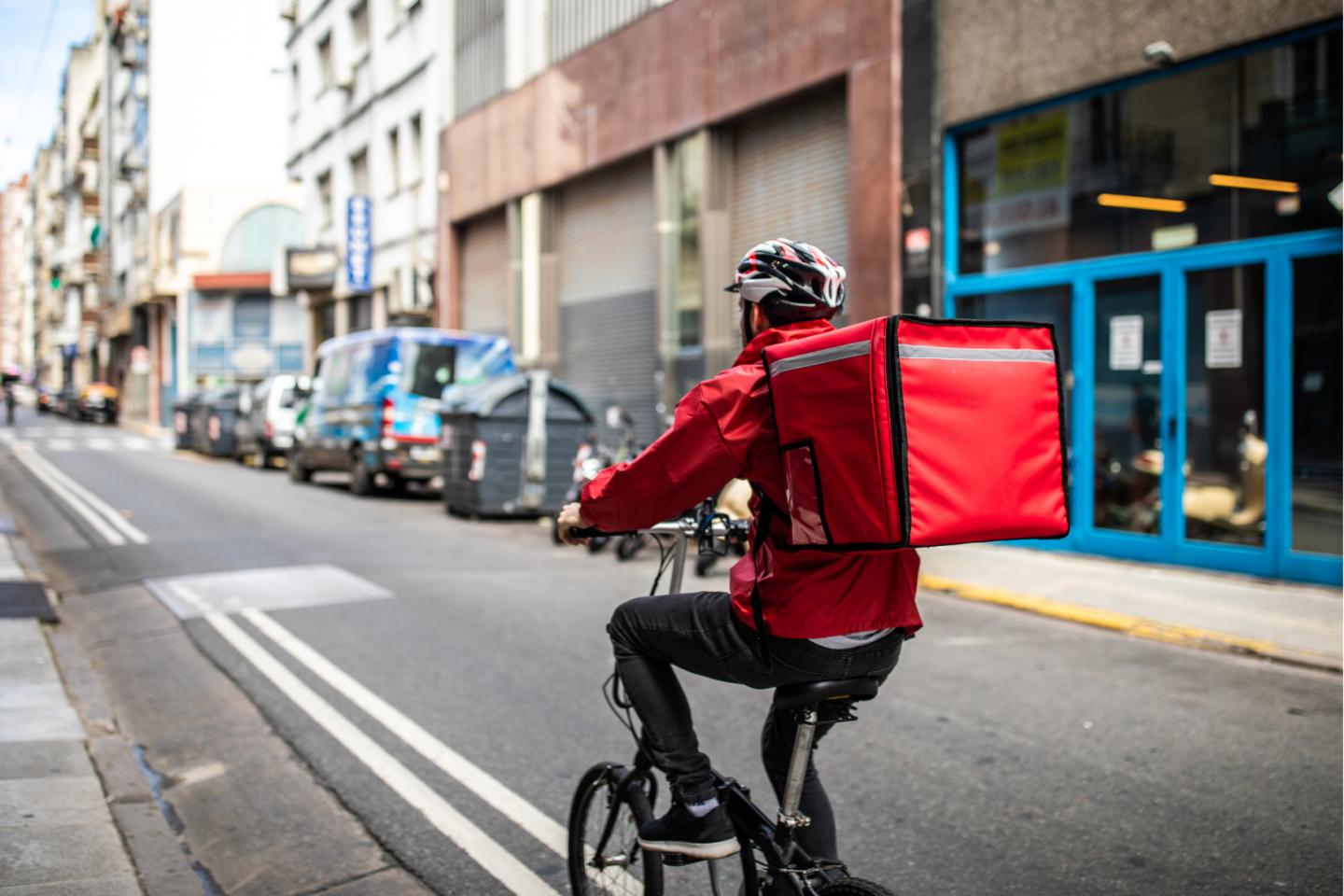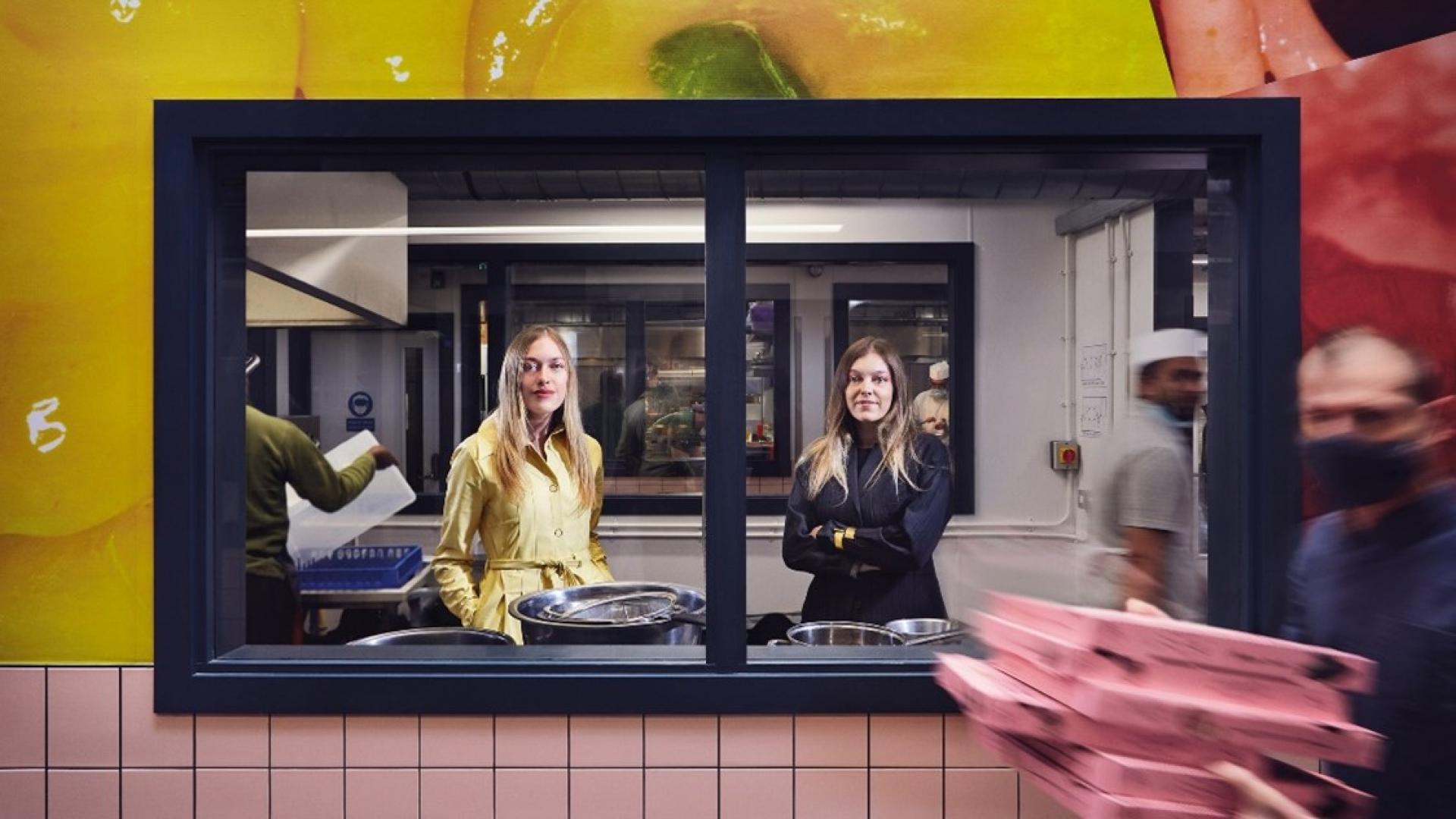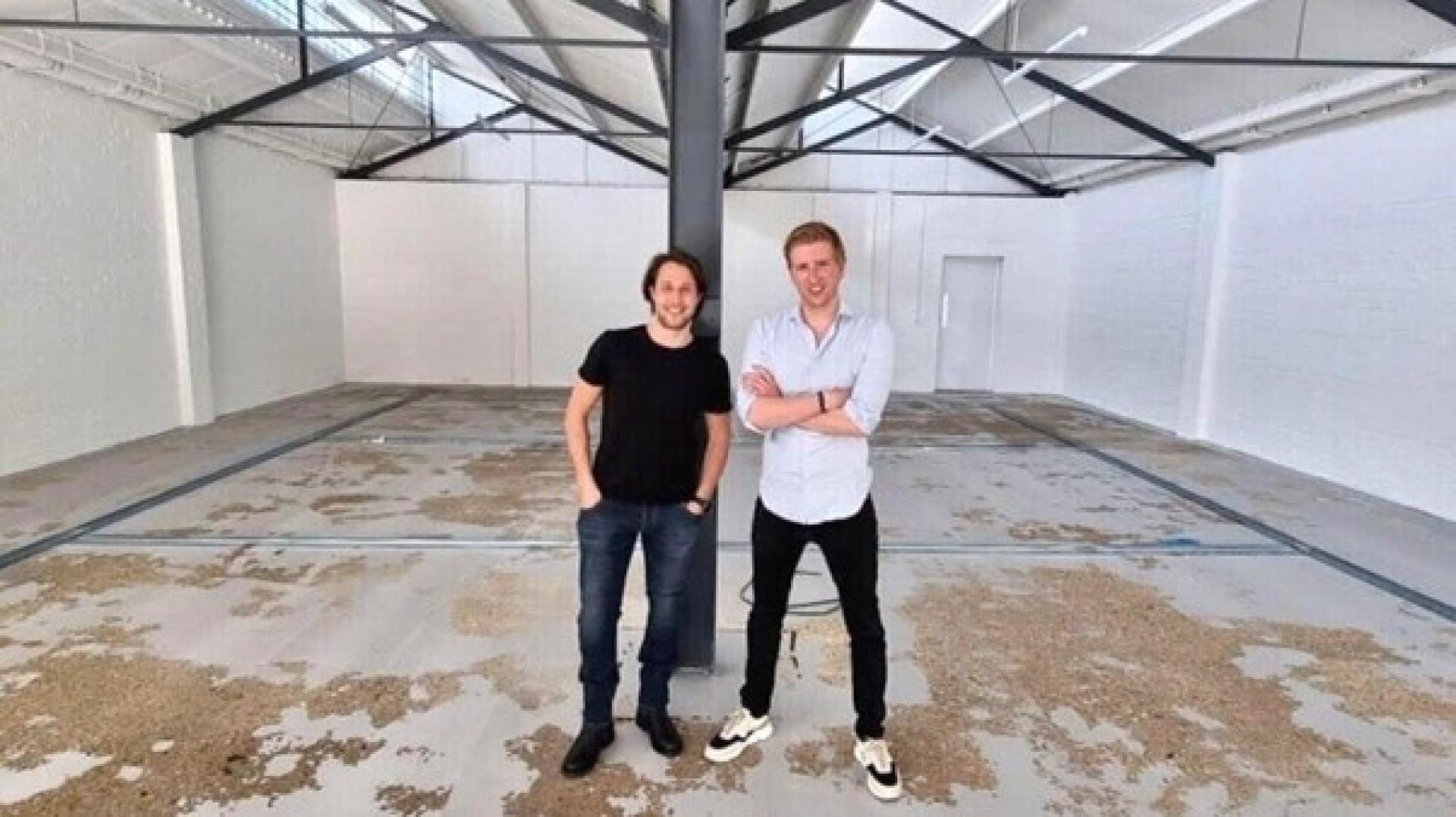Step aside, E-commerce. It’s time for Q-commerce to shine.
Developed in a market shaped by the global pandemic, Q-commerce (or ‘Quick Commerce’) is the natural evolution of E-commerce with a huge emphasis on fast logistics.
Consumer expectations have changed in the modern world.
Waiting 3-5 days for delivery feels sluggish. Companies are now offering competitive delivery services that can often provide goods to customers within the space of an hour.
The Q-Commerce revolution is all about speed and convenience.
Many early pioneers in this market have created business models revolving around ‘dark’ or ‘ghost’ spaces. These are industrial units that are strategically placed to facilitate rapid deliveries.
Brands utilise these tactical spaces to store or manufacture their goods, paying a fraction of the cost of a standard retail location. After integrating with efficient fleet management or shipment solutions, they have a solid base to launch their operations from.
Emergency popcorn required for movie night?
Lacking chilli flakes for your avocado toast?
The Q-Commerce combination of smooth logistics and ready availability can deliver your goods in the blink of an eye.
The Q-Commerce marketplace
Q-Commerce is currently generating a huge amount of investment. This is even more impressive when you consider how young the market truly is.
There’s plenty of room for growth, and many established brands are still in their infancy.
Businesses like Gorillas are boasting valuations of over $1bn, achieving unicorn status in just 9 months. Other major brands like Getir and GoPuff have seen similar success.
But these new services don’t just magically appear. Q-Commerce businesses need watertight logistics in order to maintain swift delivery timings, and this is particularly important for food delivery.
So who are the ‘ghost kitchen’ providers fuelling our favourite food delivery apps? Let’s take a look at some of the key players who keep Q-Commerce brands thriving.
Karma Kitchen
The London-based Karma Kitchen startup was founded by Eccie and Gini Newton in 2018.
The business offers co-working and commercial kitchen spaces to SMEs in the food and drinks industry. This can be a major opportunity for food startups and virtual restaurant brands that need an affordable base of operations.
Eccie claims that Karma Kitchen “provides kitchen space for businesses that can’t afford the high rent of bricks and mortar” - a testament to the flexibility and agility of the Q-Commerce model.
Since launching in 2018 Karma Kitchen has raised a significant £254m in equity investment across three funding rounds. The formula is clearly working.
The company has even worked alongside food delivery giant Uber Eats to launch an ‘accelerator’ scheme, encouraging local restaurants to trial the dark kitchen model.
Eccie and Gini also have relevant experience in the industry, having run their own food delivery service Karma Cans. Their in-depth knowledge of the need for operational efficiency and reliable logistics has played a major part in the success of Karma Kitchen.
Growth Kitchen
Growth Kitchen was founded by Mate Kun and Tom Gatz in 2020. The startup is all about working harmoniously with delivery apps to create high-quality Q-Commerce experiences for customers.
In the words of Mate Kun: “Why not take the best of both worlds and bring what Gorillas has done for groceries to restaurants? Why not bring the best delivery restaurants into the best postcodes near our homes?”
Growth Kitchen places a big emphasis on the quality of the goods being produced in their kitchens, combining this with locations designed to optimise speed and efficiency.
The brand also acknowledges the environmental benefits of Q-Commerce partnerships.
Many grocery store purchases involve single-use packages and plastics. Growth Kitchen focuses on enabling restaurant-quality deliveries with a reduced environmental impact.
The Cook & The Thief
The Cook & The Thief was founded by Andrew Grahame in 2015 and prides itself on working exclusively with established chefs and award-winning restaurants.
The business strives to offer consumers a third option beyond cooking for themselves or ordering takeaway from mainstream restaurants.
The result is premium dining experiences available to customers at home, delivered through a cost-efficient business model and served in biodegradable packaging.
The Cook & The Thief bases its services on three core principles that set it apart from other businesses in the dark kitchen sector - a passion for working with great chefs, a commitment to maintaining a diverse menu, and a big emphasis on sustainability.
In September 2020 the business generated £1.3m in funding, and the long-term goal is to open 100+ ghost kitchens worldwide with the help of crowdfunding.
Who is funding these ghost kitchens?
A combination of smart logistics, business acumen and culinary passion is driving the success of many of these ghost kitchens.
But funding and investment are also crucial for these startups to scale effectively.
Vengrove Real Estate Management has played a major role in the growth of Karma Kitchen, providing them with almost £240m in Series A funding in 2020. This money has been used by Karma Kitchen to expand its offering and open new kitchen spaces.
Growth Kitchen has received substantial financial support from Phoenix Investments, which has allowed the business to begin planning for additional kitchen spaces across London.
The Cook & The Thief has received critical funding from both individual investors and crowdfunding sources, alongside the government-backed Future Fund scheme. All of this investment will be fundamental to plans for global expansion.
These core investors are fuelling the development of the Q-Commerce market and will continue to play a vital role as new businesses emerge.
The Q-Commerce market is incredibly exciting for both food delivery platforms and the ghost kitchens powering their services.
Investment is continuing to grow, consumer appetite is constantly increasing, and brands are expanding at light speed to open more kitchen spaces.
This fast-moving sector has already seen the launch of several highly ambitious brands, and there’s no doubt that this trend will continue in the future.
Are you a ghost kitchen looking to scale up your team? Or just keen to get involved in the wonderful world of Q-Commerce? Get in touch at [email protected]



